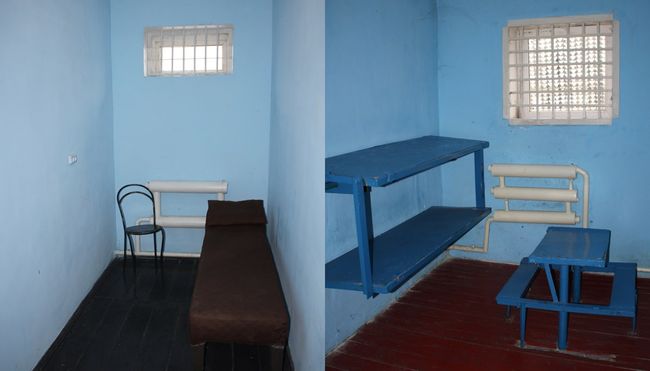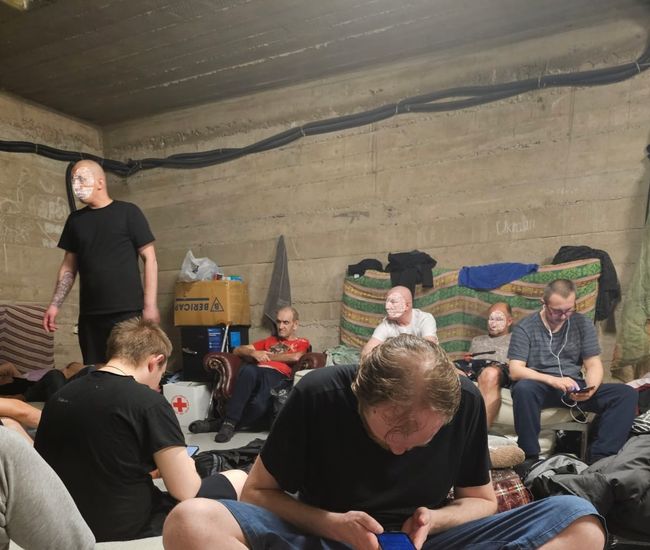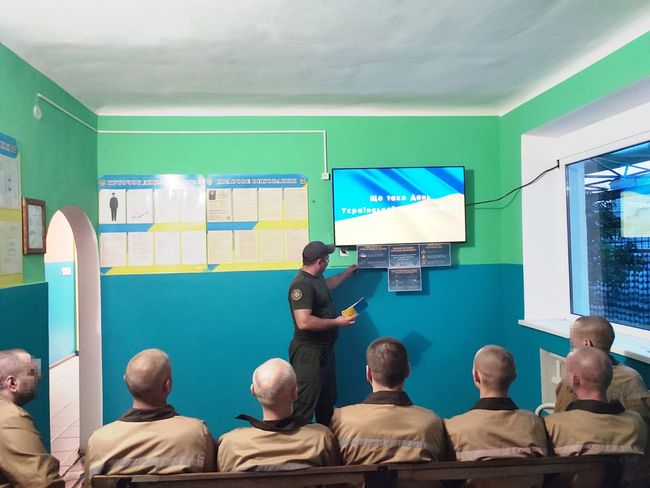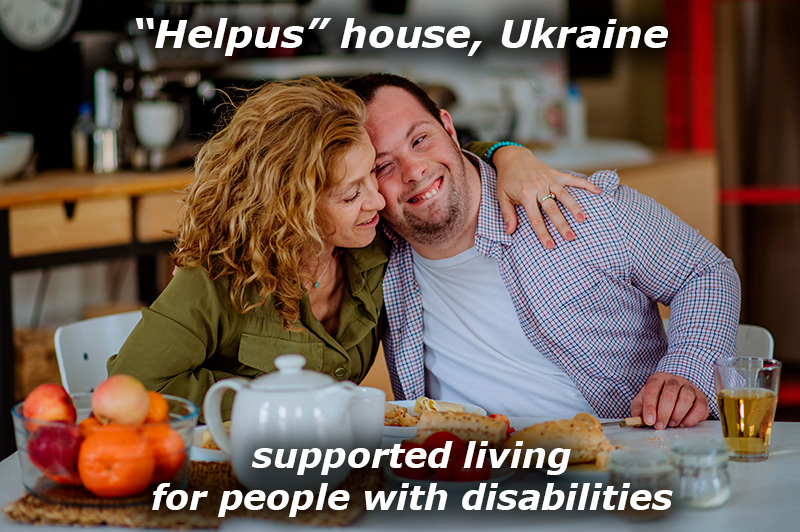The Russian military strike on the night of July 29 on the territory of the Bilenkivska correctional colony in Zaporizhzhia region became one of a series of similar incidents, prompting human rights defenders to ask why the penal system did not take care of the prisoners’ safety.
This question was raised by the organization “Prisoners’ Protection of Ukraine.”

Illustrative image. One of the disciplinary isolation unit’s premises and the paramedic’s room at Bilenkivska Correctional Colony No. 99 in 2022 during a human rights defenders’ visit. Photo: Kharkiv Human Rights Group
As a result of the Russian shelling at Bilenkivska correctional colony, 17 deaths have been confirmed. Rescue operations are ongoing at the time of writing, so the number of victims and injured may change.
Human rights defenders remind that over the past three years, the Russian army has carried out at least 60 strikes on penitentiary institutions in Kharkiv, Donetsk, Mykolaiv, Zaporizhzhia, and Kherson regions. Meanwhile, the attack on Bilenkivska colony on the night of July 29 became the first with a large number of fatalities.
Last year, as stated in the report of the Verkhovna Rada Commissioner for Human Rights, Bilenkivska colony was already targeted by a Russian drone strike but without casualties. Violations in the institution’s operation were found even before the full-scale war by both the prosecutor’s office and human rights defenders.
“The question is not whether Russia is guilty (of the attack on the night of July 29, 2025 – editor). Its guilt is obvious. The question is why the penal system did not take elementary measures to save people who physically cannot save themselves? In many colonies across the country, so-called shelters are basements without ventilation, without any safety certificate. Without communication. Without light. Without chances. They cannot withstand any hit – even from debris,” human rights defenders say.
According to the head of “Prisoners’ Protection of Ukraine,” Oleh Tsvilyi, all institutions in Zaporizhzhia region were evacuated except for Bilenkivska correctional colony, and responsible officials ignored human rights defenders’ remarks.
“Such a number of victims... Someone must be held accountable for this,” he emphasized in a comment to Suspilne.
The human rights defender specified that shelters, usually basement premises, exist in almost all penitentiary institutions, but they are poorly equipped, with no places to sit or lie down. However, Tsvilyi believes the issue is not so much whether such shelters even exist in colonies.
“Between the alarm announcement and the strike, there was very little time. One question is whether those shelters were opened so prisoners could quickly move there themselves. Another is why this colony still functions at all,” says the head of the NGO “Prisoners’ Protection of Ukraine.”
He said that human rights defenders received information more than a year ago from prisoners and staff that Bilenkivska colony was under shelling, things were constantly falling on and flying over them, and the sounds of war were heard very close.
“It is criminal negligence that people were not evacuated in time. To be fair, the number of prisoners in this colony was reduced, some people were transferred to VK-80. But many still remain, and they work,” Oleh Tsvilyi said.
The government was also urged to evacuate penitentiary institutions from danger by the authors of a shadow report for the European Commission, among which was the Human Rights Center ZMINA.

Bilenkivska Correctional Colony after the Russian shelling on the night of July 29, 2025
The Ukrainian penitentiary system is overseen by the State Criminal-Executive Service, coordinated by the Ministry of Justice. Since 2022, human rights defenders have criticized government officials for not organizing a proper evacuation for inmates, which the government instead considered “successful.”
For example, in Kherson, some prisoners wrote applications to join the military, but these lists fell into the hands of Russian forces. During the liberation of parts of Kherson region, Russians took away a number of prisoners, tortured them on the territory of the Russian Federation, and now the freed prisoners cannot get home without help from human rights defenders and diplomats. Some resort to self-harm on the Russia-Georgia border to draw attention.
Such cases are not isolated, and one of the first public cases occurred in August 2023.

A group of former Ukrainian prisoners stuck at the Russia-Georgia border in July 2025. Photo: Hanna Skrypka
It is known that in Mariupol, in a women’s colony captured by Russians, at least seven prisoners were beheaded and forced into prostitution in exchange for food. One woman who was in the facility during the 2022 fighting told human rights defenders that the occupation administration did not provide medical treatment, and at least one of her cellmates died from leg amputation.
According to the Ombudsman’s report, in 2022, 11 penitentiary institutions were evacuated, including seven correctional colonies and several penal institutions and correctional centers.
In February-March that year, the Department of Execution of Criminal Sentences explained how prisoners should behave in occupation, but human rights defenders said this was done too late.

Illustrative image. Prisoners of Bilenkivska Correctional Colony No. 99 listen to a talk about Ukrainian Statehood Day in July 2025. Photo: institution's Facebook page
Before the full-scale war began, according to human rights defenders, officials ignored warnings about those who might collaborate with Russians in occupation. Notably, former head of the Northern Correctional Colony No. 90 in Kherson, Yevhen Soboliev, was sentenced in absentia to life imprisonment for treason last year.
Prosecutors proved in court that Soboliev allowed Russian soldiers to rest on the colony’s territory and later received a promotion in the occupation to “Head of the Penal Service Department in Kherson region.” He was also sentenced in absentia to 13 years in prison for deporting more than 1,700 people.
Human rights defenders documented problems not only in occupied territories where about 3,000 prisoners reportedly remain.
In March 2022, after evacuation from Orihiv Correctional Colony No. 88 to Kropyvnytskyi Correctional Colony No. 6, nearly 400 prisoners complained about brutal beatings. The fact was documented by the Verkhovna Rada Commissioner for Human Rights and a member of parliament’s assistant.
“This is extreme injustice and impunity. Our warriors fight the enemy selflessly and fearlessly, defending our land, giving their lives for us. Others help the Armed Forces of Ukraine however they can, each making efforts from their place for the joint victory over the Russian aggressors. But there are monsters who even during war use their power to torture and abuse people,” the Kharkiv Human Rights Group expressed indignation then.

One of the prisoners beaten during the evacuation of Orihiv Correctional Colony No. 88. Photo: Serhii Zuikov
Until September 2024, the Minister of Justice of Ukraine was Denys Malyuska.
The official publicly stated that human rights were not a priority of his department, and ignored the Ombudsman’s recommendations on how to resolve issues in places of detention according to reports.
The minister was criticized for a project to open “paid cells” in detention centers, which human rights defenders called discriminatory based on wealth. For example, a few months after the project started in Zaporizhzhia detention center, one prisoner bought all premium places for himself.
While in office, the justice minister even jokingly discussed the possible rape of a transgender woman in a male prison cell. Transgender identity is not a disorder, but transgender people still face discrimination.
Additionally, commenting on prisoner mobilization, the minister said he “does not choose people for the parade,” and regarding consent to conscription said: “There is no question of allowing prisoners to serve in the army, no one plans to ask them, at least that is our position.”
Currently, more than 8,000 former prisoners serve in the military, and mobilization is done by court decision and only upon the person’s request.
Despite criticism, the “shame” on the minister was felt for other officials’ work. His dismissal was supported by 249 deputies of the Verkhovna Rada, some of whom applauded the ex-minister after the vote.
Recall that cultural figures complain that the Ministry of Culture allegedly refuses responsibility for the failed evacuation of valuables from museums during the full-scale Russian invasion.
In 2022, then-head of the ministry, Oleksandr Tkachenko, claimed to have faced resistance from officials, for example in Mariupol, when he proposed evacuating valuables in February of that year.
These words angered Mariupol officials, who accused the Ministry of Culture and museum directors, some of whom collaborated with the occupiers, of the evacuation failure.



